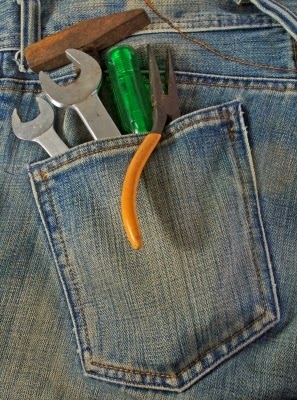The morning my toilet wouldn't flush was one such emergency. I steeled myself for the plumber's visit to deal with what I suspected would be a simple job. On arrival, though, he noticed that not only did the internal workings need to be repaired, but the cistern itself was cracked.
Cue a second visit to replace that; a much bigger and messier task than anticipated. Also, the new cistern was white, rather than cream as per the existing suite, and smaller than the old one, so a strip of different coloured paintwork was now visible either side of it. I need items to match, and be flawless, so this only added to my growing stress.
 |
| Image courtesy of Rawich/FreeDigitalPhotos.net |
Three weeks ago, I faced possibly my biggest domestic nightmare yet.
It began when I returned home to find my ageing boiler wasn't working. An engineer visited the next day to fix it, but a few hours later - just as I was getting settled after the upset of his visit - it gave out a second time.
A different engineer came around the following morning and declared it irreparable. I tidied up yet again, even more stressed now that I knew the boiler had to be replaced. Only to discover, just as I was - finally - leaving for work, that it had developed a drip, meaning the engineer had to return later to tighten a valve. And I had to tidy up once more.
That evening, an independent heating engineer came to quote for a replacement. And the following day, a British Gas rep. And, the day after that, the same rep returned, to sign off the paperwork for the job. Even without any messy work being involved, their visits necessitated a 'clear-up', as they kept touching and moving things.
In the space of four days, four strangers had made five visits to my home, leaving me beside myself with stress and anxiety. As a result, when two friends arrived with spare portable heaters, even their presence in my flat was almost unbearable.
Hence the title of this post, which I initially hesitated over, due to the sensitivities around its US meaning of 'unauthorized and forceful entry into a dwelling'. Then it occurred to me that, while none of these workmen broke into my home, I certainly didn't let them in willingly. Their presence left me feeling deeply unsettled and as if my space had been violated. Clearly not as bad as a burglary, but with definite similarities in my response.
And the challenge of the new boiler being installed? That's a story for another day...



